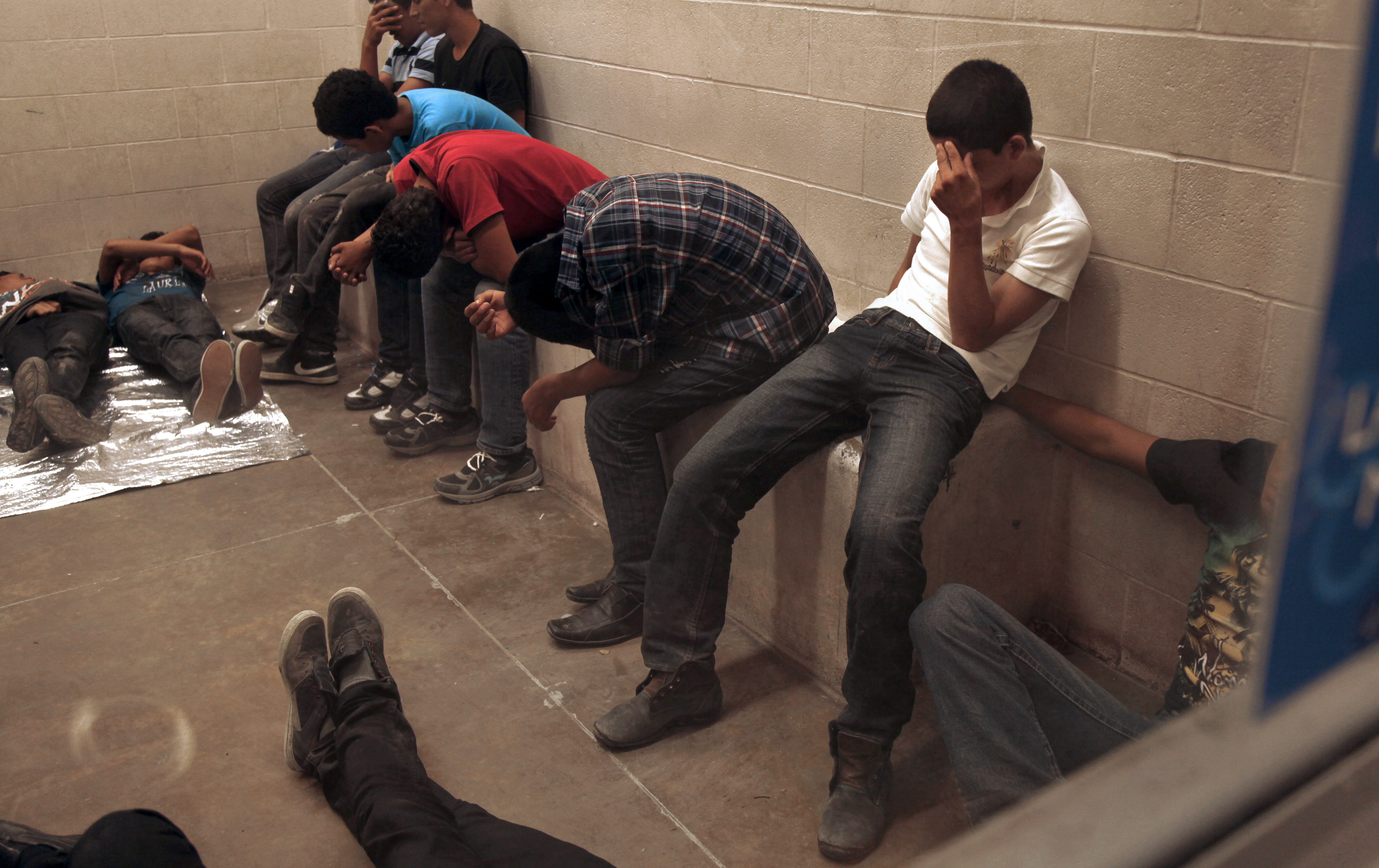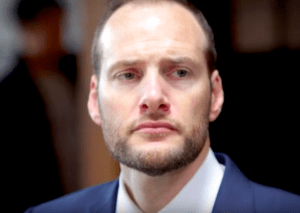Private Prisons Rake In Millions Detaining Immigrants
As The New York Times reports, some do so with little regard for inmates’ welfare and safety. Immigrants detained while crossing the border, housed at the McAllen Border Patrol Station in McAllen, Texas. (Rick Loomis, Los Angeles Times, Pool / AP)
Immigrants detained while crossing the border, housed at the McAllen Border Patrol Station in McAllen, Texas. (Rick Loomis, Los Angeles Times, Pool / AP)
Private for-profit prisons are a roughly $4 billion industry in America. When Thomas Beasley first started what became CoreCivic, one of the two largest private prison corporations (the other is GEO Group) in the 1980s, America was running out of space in federally owned prisons. Beasley says he was just filling a hole in the market, telling an interviewer, “You just sell it like you were selling cars or real estate or hamburgers.”
As The New York Times notes in its Retro Report series—which explores the effects of political and business trends—such prisons “are where the government sends most people caught trying to enter the United States illegally.”
The documentary video in this week’s Retro Report explores how these immigrant prisoners are treated. As the Times explains, “One picture of private prisons captured in the video includes barely edible food, indifferent health care, guard brutality and assorted corner-cutting measures.”
Josue Vladimir Cortez Diaz, a gay immigrant from El Salvador, is a key character in the documentary. He says he came to America to escape persecution and death threats. He was captured at the border in California and sent to a GEO Group prison there.
He was later released, but, as the Times reports, “not before he and other detainees staged a hunger strike to protest their treatment at [the facility in Adelanto, Calif.]. Prison guards beat and pepper-sprayed them, they say, and they are now suing GEO and federal and local authorities for what they say were rights violations.”
In the documentary, he explains that “the conditions in the detention center, they’re bad, right down to the food. … They don’t care if someone is sick, if the food goes bad. That’s how we came to say we have to protest.”
GEO Group spokesman Pablo Paez called Cortez Diaz’s statements “completely baseless,” adding that federal authorities “found that the officers acted in accordance with established protocol.”
Private prison corporations may house only 9 percent of the nation’s total prison population, but they are in charge of a much larger portion of immigrant detainees—“73 percent by some accounts,” the Times reports. Alonzo Peña, a former deputy director of U.S. Immigration and Customs Enforcement, says that ICE is at least partly to blame:
“We set up this partnership with the private industry in a way that was supposed to make things much more effective, much more economical,” he said. “But unfortunately, it was in the execution and the monitoring and the auditing we fell behind, we fell short.
While the private prison industry is raking in billions for the corporations in charge, the system doesn’t appear to save the government much money, the Times reports:
Studies suggest that governments save little money, if any, by turning over prison functions to private outfits. And in 2016, under President Barack Obama, the Justice Department concluded that private prisons were in general more violent than government-operated institutions, and ordered a phaseout of their use at the federal level. Reversing that order was one of the first things that President Trump’s attorney general, Jeff Sessions, did on taking office.
The companies claim they are in fact more efficient than the government. Rodney King, CoreCivic’s public affairs manager, told the Times, “Privately operated facilities are better equipped to handle changes in the flow of illegal immigration because they can open or close new facilities as needed.”
Corporations like CoreCivic and GEO Group have extensive financial and political connections, spending millions on lobbying Congress to ensure they maintain their power.
Read the entire article, and watch the video, here.
Your support is crucial…With an uncertain future and a new administration casting doubt on press freedoms, the danger is clear: The truth is at risk.
Now is the time to give. Your tax-deductible support allows us to dig deeper, delivering fearless investigative reporting and analysis that exposes what’s really happening — without compromise.
Stand with our courageous journalists. Donate today to protect a free press, uphold democracy and unearth untold stories.









You need to be a supporter to comment.
There are currently no responses to this article.
Be the first to respond.